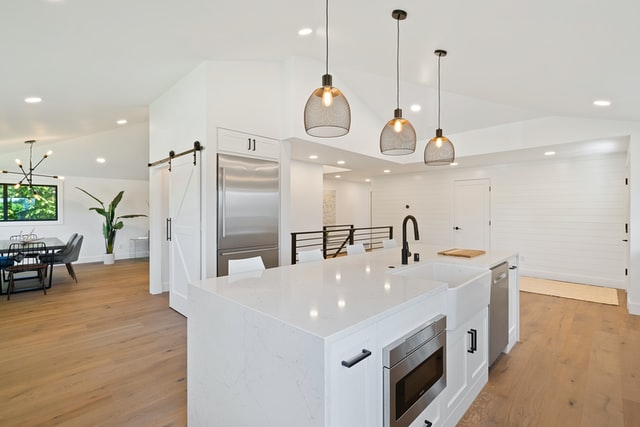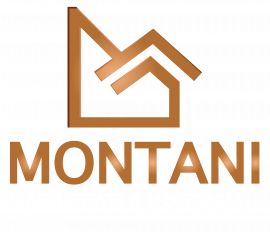Our Exclusive Client
Mortgages
We Have Solutions for All Your Real Estate Questions!
What is a conventional loan?
When most people think of a mortgage, they’re thinking of a conventional loan.

Thanks to their low rates and wide availability, conventional loans are the most popular
mortgage for home buying and refinancing.

Conventional loans are the closest you can get to a standard mortgage. There are no special eligibility requirements, pretty much all lenders offer them, and you can qualify with just 3% down and at least a 620 credit score.

Conventional loan requirements
Conventional loan requirements vary by lender, but all conventional loans have to meet certain guidelines set by Fannie Mae and Freddie Mac:
- A minimum credit score of 620
- A debt-to-income ratio lower than 43%
- A down payment of at least a 3%
The conventional loan amount also has to be within conforming loan limits: up to $510,400 in most areas, but higher in some high-cost ZIP codes.
If you apply for a conventional loan with better credentials — like a 740 or higher credit score and 20% down payment, for example — you’ll get access to lower rates and a lower monthly payment.
If you’re on the edge of qualifying for a conventional loan — with a credit score right around 620 and higher levels of debt —be extra sure to shop around.
Mortgage lenders can set their own requirements and rates for conventional loans, as long as they fall within the conforming loan limits set by Fannie and Freddie.
You can likely find one that’s more flexible and has better rates for your situation. That’s what we are here for. To make the process easier for you!
Why use an FHA loan?
FHA loans have been making homeownership accessible for decades.

Although these loans are backed by the Federal Housing Administration, they’re accessed
through private mortgage lenders.
That means you can shop around for the lowest interest rate and fees and make sure you get a
great deal on your FHA home loan.

Tailored to borrowers with lower credit scores, an FHA mortgage makes it possible to buy a house with credit starting at 580 and only 3.5% down.
But homebuyers aren’t the only ones who can benefit. For current homeowners, an FHA
refinance may let you access low rates and home equity, even without great credit.

What is an FHA Loan?
An FHA loan is a mortgage insured by the Federal Housing Administration.
FHA insurance protects mortgage lenders, allowing them to offer loans with below-average interest rates, easier credit requirements, and low down payments (starting at just 3.5%).
FHA loans are especially popular with first time, lower-income, and/or lower-credit home
buyers, thanks to their flexibility and low rates.
But FHA financing isn’t limited to a certain type of buyer — anyone can apply.
FHA Loan Requirements
To qualify for an FHA home loan, you’ll need to meet these requirements:
- A 3.5% down payment if your credit score is 580 or higher
- A 10% down payment if your credit score is 500-579
- A debt-to-income ratio of 50% or less
- Documented, steady income and employment history
- You’ll live in the home as your primary residence
- You have not had a foreclosure in the last three years
These FHA loan requirements are a lot more lenient than other types of mortgages. For instance, FHA allows borrowers with credit scores as low as 500, while the minimum credit score for most other loan types is 620 or higher.
And FHA allows debt-to-income ratios up to 50% in some cases, while conventional loans max
out at 43%. That means if you have a lot of current debt, you’ll be more likely to qualify for a home loan with FHA.
Overall, these guidelines make it possible to buy a house with FHA even if you don’t have a
super high credit score or a ton of money saved up.
FHA vs Conventional Loans
What’s a better low-down-payment mortgage: The FHA loan or Conventional 97?
FHA loans are great for low-to-average credit. They allow credit scores starting at just 580 with a 3.5% down payment. But FHA mortgage insurance is always required. Conventional loans are often better if you have great credit, or plan to stay in the house a long time.
With credit in the mid to high 600s, you can get a Conventional 97 loan with just 3% down. And mortgage insurance can be canceled later on. The right one for you depends on your home buying goals and what you qualify for.
Conventional 97 Loan
FHA Loan
** (Down payment and closing costs can be 100% gift funds, grants, or loan)
HELOC (Home Equity Lines of Credit) Loans
Put your equity to work with a home equity loan or refinance. Plenty of Americans are equity-rich.

Since a home equity loan is secured against your house, it has a much lower interest rate than other borrowing options — like personal loans or credit cards. However, home equity loans and HELOCs (home equity lines of credit) still have higher interest
than cash-out refinances. So consider your options carefully.

The average homeowner gained more than $5,000 in home equity last year. And in some states, households gained more than $20,000.
A home equity loan is one way to tap into your home’s cash value.

How home equity loans work
When you apply for a home equity loan, the amount you can borrow is determined by the existing equity in your home. That’s the difference between the value of your home versus what you owe on your mortgage.
Also referred to as a second mortgage, a home equity loan is a way to access that equity without selling the home or refinancing.
Unlike a traditional mortgage — one you use to buy a home — you can use the money borrowed with a home equity loan for whatever you like.
The equity can even be used even if it’s not related to your home. Home equity loans are often used to finance major expenses such as:
- Medical bills
- College education
- Vacation
- A new car
- A second home
- Home repairs
- Home improvements
While this can make a home equity loan sound appealing, it’s important to remember that it’s a secured loan. This means you’re using your property as collateral.
When you get a home equity loan, a “lien” is created against your house and reduces your actual home equity.
A lien gives the lender the right to foreclose on your home if you can’t repay your loan as agreed. So, as with any large loan, there are risks involved.
How can I borrow with a home equity loan?
Not all lenders offer home equity loans. The ones that do can typically lend up to 80–90% of your home’s equity.
For example, say you purchased your home five years ago and it’s now worth $300,000. You owe $200,000 on your mortgage. You now have $100,000 worth of equity. But odds are, you could only borrow around $55,000.
Here’s how to calculate that, assuming you don’t have any other liens on your home.
- Home’s appraised value: $300,000
- Mortgage loan balance: $200,000
- Equity in your home: $100,000
- Calculate 85% of your home’s current value: $300,000 x .85 = $255,000
- Subtract the $200,000 that you currently owe:
- Total equity available to borrow: $55,000
You’ll probably need to build up a good amount of equity in your home before you’re able to borrow a large amount of money. Ultimately, your lender will determine how much you can borrow by looking at a number of different factors. Similar to when you obtained your original mortgage, lenders evaluate your income, your debt ratios, the value of your home and your credit history.
Determine the type of home equity loan that’s best for you
You will likely have two choices for your home equity loan:
- A fixed-rate home equity loan
- A variable-rate home equity line of credit (HELOC)
Here’s how the two compare:
Fixed-rate home equity loans
A home equity loan is basically a second mortgage. You take out the total amount you intend to borrow in one lump sum and pay it back every month. The repayment term for home equity loans is typically 5-15 years. And the payment and interest rate remain the same over the lifetime of the loan. Also, a home equity loan must be repaid in full if the home is sold.
Adjustable-rate home equity lines of credit (HELOCs)
A home equity line of credit, or HELOC, gives you the ability to borrow up to a certain amount over a certain period of time. The draw period (typically 5 to 10 years) is followed by a repayment period when draws are no longer allowed (10 to 20 years). A HELOC is a revolving line of credit, much like a credit card. You can draw on the available credit as needed, pay it back, and then draw on again, for a term determined by the lender.
HELOCs typically have a variable interest rate, but some lenders may convert to a fixed rate for the repayment period. Like a credit card, you can simply pay off the interest every month or pay down the principal as well, depending on your financial needs at the time.
Home equity loans: Pros and Cons
Home equity loans can be a great way to access the equity in your home without selling it.
Home equity loan pros:
- If you have a low rate on your current mortgage, you can keep that in place
- Fixed rates can make budgeting easier thanks to predictable payments
- Lower interest rates that may be tax-deductible vs. a personal loan or credit card
- Quicker closing time than for a cash-out refinance
But as with any time you’re borrowing money, a home equity loan may not be the first choice for every homeowner.
Home equity loan cons:
- Less flexibility than a home equity line of credit (HELOC)
- You’ll pay interest on the entire loan amount, even if you’re using it incrementally, such as for an ongoing remodeling project
- Lenders may require slightly higher credit scores than for traditional mortgages
- Some lenders only offer HELOCs, but not fixed-rate home equity loans
It’s up to you to decide whether a home equity loan or another option — like a cash-out refinance — is best given your situation.
The VA home loan: Unbeatable benefits for veterans
For many who qualify, the VA loan program is the best possible mortgage.

The VA loan asks for no down payment, requires no mortgage insurance, and has lenient rules about qualifying, among many other advantages.
Here’s everything you need to know about qualifying for and using a VA loan.

Backed by the U.S. Department of Veterans Affairs, VA loans are designed to help active-duty
military personnel, veterans and certain other groups become homeowners at an affordable cost.

Top 10 VA loan benefits
1) No down payment on a VA loan
Most home loan programs require you to make at least a small down payment to buy a home. The VA home loan is an exception. Rather than paying 5, 10, 20 percent or more of the home’s purchase price upfront in cash, with a VA loan you can finance up to 100 percent of the purchase price. The VA loan is a true no-money-down home mortgage opportunity.
2) No mortgage insurance for VA Loans
Typically, lenders require you to pay for mortgage insurance if you make a down payment that’s less than 20 percent. This insurance — which is known as private mortgage insurance (PMI) for a conventional loan and a mortgage insurance premium (MIP) for an FHA loan — would protect the lender if you defaulted on your loan. VA loans require neither a down payment nor mortgage insurance. That makes a VA-backed mortgage very affordable upfront and over time.
3) VA loans have a government guarantee
There’s a reason why the VA loan comes with such favorable terms. The federal government ‘guarantees’ these loans — meaning a portion of the loan amount will
be repaid to the lender even if you’re unable to make monthly payments for whatever reason. This guarantee encourages and enables private lenders to offer VA loans with exceptionally attractive terms.
4) You can shop for the best VA loan rates
VA loans are neither originated nor funded by the VA. They are not direct loans from the government. Furthermore, mortgage rates for VA loans are not set by the VA itself. Instead, VA loans are offered by U.S. banks, savings-and-loans institutions, credit unions, and mortgage lenders — each of which sets its own VA loan rates and fees. This means you can shop around and compare loan offers and still choose the VA loan that works best for your budget.
5) VA loans don’t allow a prepayment penalty
A VA loan won’t restrict your right to sell the property partway through your loan term. There’s no prepayment penalty or early-exit fee no matter within what time frame you decide to sell your home. Furthermore, there are no restrictions regarding a refinance of your VA loan. You can refinance your existing VA loan into another VA loan via the agency’s Interest Rate Reduction Refinance Loan (IRRRL) program, or switch into a non-VA loan at any time.
6) VA mortgages come in many varieties
A VA loan can have a fixed rate or an adjustable rate. In addition, you can use a VA loan to buy a house, condo, new-built home, manufactured home, duplex or other types of properties. Or, it can be used for refinancing your existing mortgage, making repairs or improvements to your home, or making your home more energy-efficient.
7) It’s easier to qualify for VA loans
Like all mortgage types, VA loans require specific documentation, an acceptable credit history, and sufficient income to make your monthly payments. But, compared to other loan programs, VA loan guidelines tend to be more flexible. This is made possible because of the VA loan guaranty. The Department of Veterans Affairs genuinely wants to make it easier for military members, veterans, and qualifying military spouses to buy or refinance a home.
8) VA loan closing costs are lower
The VA limits the closing costs lenders can charge to VA loan applicants. This is another way that a VA loan can be more affordable than other types of loans. Money saved on closing costs can be used for furniture, moving costs, home improvements, or anything else.
9) The VA offers funding fee flexibility
VA loans require a “funding fee,” an upfront cost based on your loan amount, your type of eligible service, your down payment size, and other factors. Funding fees don’t need to be paid in cash, though. The VA allows the fee to be financed with the loan, so nothing is due at closing. And, not all VA borrowers will pay it. VA funding fees are normally waived for veterans who receive VA disability compensation and for unmarried surviving spouses of veterans who died in service or as a result of a service-connected disability.
10) VA loans are assumable
Most VA loans are “assumable,” which means you can transfer your VA loan to a future home buyer if that person is also VA-eligible. Assumable loans can be a huge benefit when you sell your home — especially in a rising mortgage rate environment. If your home loan has today’s low rate and market rates rise in the future, the assumption features of your VA become even more valuable.
Buying A Home Steps
Most frequent questions we can help with!
- Mortgage pre-approval: The first step to buying a home?
- How much mortgage can I qualify for?
- First time home buyer: Are you financially ready to buy a home?
- How to know how much house you can afford?
- How to apply for a mortgage?
- Does every home buyer need a pre-approval before home shopping?
- Should you get pre-qualified or pre-approved? What’s the difference?
- How long does it take to get pre-approved for a mortgage?
- How long does pre-approval for a mortgage last?
- Seller concessions: How a seller can pay your closing costs?
- What are your chances of mortgage approval? Your down payment and credit score make a big
difference?
- What is a lender?
- Types of mortgage companies: Which will give you the “best deal”?
- What to look for in a mortgage company?
- Which is better? A mortgage broker or a bank?
- How to get an online mortgage?
- How much down payment do you need for a house
- How to buy a house with $0 down in 2020?
- Buying a house without a lot of cash?
- Down payment gifts: How to give and receive a cash down payment gift for a home?
- Earnest money check, down payment and closing costs: When are they due?
- Average closing costs and how to keep yours low?
- How a seller can pay your closing costs?
- The lowdown on down payment grants?
- What is a mortgage? Home loan basics?
- LTV explained: What is “loan to value” for a mortgage?
- Simple mortgage definitions: Debt-to-Income (DTI)
- Mortgage discount points?
- Comparing home loans: Which one is best for me?
- Do I need a real estate agent to buy a home?
- Dual agency can cost you: Beware of “double agents” when buying a home
- How much do real estate agents make? And who pays
- Discount brokers: Do they really provide 1 percent rebates to buyers
- You want to fire your real estate agent. Can you do that?
- Finding the perfect house?
- Buying a home: How do you know that you’re getting a good house?
- Safe neighborhood: How to check it out before buying a home?
- Considering a home with a long commute?
- Open houses: What’s their role in the home-buying process?
- How to buy a short sale home?
- Pros and cons of different types of homes?
- Condo or house: Which should I buy
- How to get a manufactured or mobile home loan?
- Multifamily homes: Make your house pay for itself?
- Understanding a real estate contract or purchase agreement?
- What happens when my real estate offer is accepted?
- What’s a contingency in a real estate purchase contract?
- Getting sellers to pay your closing costs?
- Counteroffer definition: What does it mean when I get a counteroffer?
- How to choose the right closing date?
- How to get out of a real estate contract?
- How do I finalize my offer to buy a home?
- Home inspection checklist: What to expect on inspection day?
- What to look for in a home inspection: Recognizing the deal breakers?
- What’s in a home inspection report?
- Should I bail after a really bad home inspection?
- Home inspection: What does a home inspector do and why should I get one?
- When should I lock my mortgage rate?
- How to shop for a mortgage and compare mortgage rates?
- What is a mortgage rate lock?
- When should you authorize (or not authorize) a credit pull?
- What does home owners insurance cover, and why does your lender require it?
- What is a home appraisal, and why do I need one?
- How an FHA appraisal works?
- Appraisal repair requirements for FHA, VA and USDA home loans?
- My house appraisal came in too low. What now?
- Buying a home: You might be able to skip the home appraisal — but should you?
- My mortgage is in “processing.” What does a mortgage loan processor do
- How to decipher the stack of mortgage loan disclosures from your lender?
- Background check: Verbal verification of employment and other instructions?
- Final approval from the underwriter: What happens next?
- Escrow definition: What an escrow company does?
- Mortgage closing: What happens at your signing?
- Use your mortgage Closing Disclosure (CD) to get the deal you were promised?
- Mortgage closing: Why does my lender want so much escrow money?
- Cash to close: What is it, how to pay it and how to avoid fraud?
- Home closing: What you need to read, what you can skim?
- What is “recording” when closing on a home purchase?
- Home closing: What happens on the day of funding?
- When I buy a home, when can I move in? How do I get my keys?
- Moving into a new house: What you need to know?
- Moving tips: How to move for less?
- Utility companies: How do I set up my new home?
- When is my first mortgage payment due?

